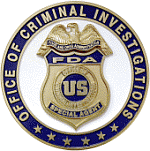September 26, 2017: Houston, Texas Man Sentenced to 40 Months and a $95,000 Fine for Smuggling Korean Human Growth Hormone Drugs to Local Patients and Professional Wrestlers
|
|
Food and Drug Administration
|
|
U.S. Department of Justice Press Release
|
|---|
|
For Immediate Release |
United States Department of Justice Eastern District of Missouri |
|---|
St. Louis, MO – George Patino, 57, of Houston, Texas, was sentenced today to 40 months of imprisonment and a $95,000 fine. Patino was previously convicted by a jury on June 8, 2017 after a three-day trial of conspiracy, distributing Human Growth Hormone (“HGH”) for unauthorized medical purposes, and smuggling.
According to Court documents, under federal law, doctors can lawfully prescribe HGH for several narrow medical uses, for example to patients with wasting diseases associated with AIDS or Prader-Willi syndrome. HGH cannot be prescribed to help patients with body-building, anti-aging, or weight loss treatments. From April 2014 through June 2015, the evidence showed at trial that Mr. Patino sent numerous packages of HGH to a local St. Louis, Missouri doctor and many local patients. The local patients receiving the HGH hoped to increase their energy, strength, endurance, and athletic ability. The HGH smuggled here to Missouri by Mr. Patino was misbranded in that the drugs’ dosage and use instructions were in Spanish not English, and the drugs came from a Korean drug manufacturer that has not been approved by the U.S. Government to sell this drug in the United States.
A local doctor, Dr. Michael “Ted” Mimlitz, previously pled guilty in this same investigation to providing misbranded HGH drugs to numerous local patients who were experiencing a lack of energy, decreases in strength or endurance, or decreased athletic ability.
“For drugs that enter the U.S. from outside the FDA-regulated distribution system, there is no guarantee that the drugs are safe and effective for patients to use,” said Special Agent in Charge, Spencer Morrison, FDA Office of Criminal Investigations’ Kansas City Field Office. “We will continue to work to protect the health of patients who rely on prescription drugs and to ensure the safety and effectiveness of those drugs.”
This case was investigated by the Office of Criminal Investigation for the U.S. Food and Drug Administration, with assistance from the U.S. Department of Homeland Security, Immigration and Customs Enforcement, Homeland Security Investigations.
Topic(s):
Prescription Drugs
Component(s):

